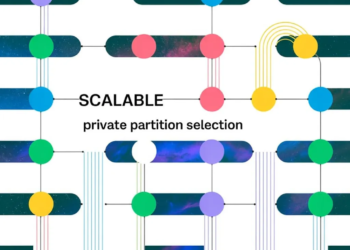If you’re a ChatGPT power user, you may have recently encountered the dreaded “Memory is full” screen. This message appears when you hit the limit of ChatGPT’s saved memories, and it can be a significant hurdle during long-term projects. Memory is supposed to be a key feature for complex, ongoing tasks – you want your AI to carry knowledge from previous sessions into future outputs. Seeing a memory full warning in the middle of a time-sensitive project (for example, while I was troubleshooting persistent HTTP 502 server errors on one of our sister websites) can be extremely frustrating and disruptive.
The Frustration with ChatGPT’s Memory Limit
The core issue isn’t that a memory limit exists – even paying ChatGPT Plus users can understand that there may be practical limits to how much can be stored. The real problem is how you must manage old memories once the limit is reached. The current interface for memory management is tedious and time-consuming. When ChatGPT notifies you that your memory is 100% full, you have two options: painstakingly delete memories one by one, or wipe all of them at once. There’s no in-between or bulk selection tool to efficiently prune your stored information.
Deleting one memory at a time, especially if you have to do this every few days, feels like a chore that isn’t conducive to long-term use. After all, most saved memories were kept for a reason – they contain valuable context you’ve provided to ChatGPT about your needs or your business. Naturally, you’d prefer to delete the minimum number of items necessary to free up space, so you don’t handicap the AI’s understanding of your history. Yet the design of the memory management forces an all-or-nothing approach or a slow manual curation. I’ve personally observed that each deleted memory only frees about 1% of the memory space, suggesting the system only allows around 100 memories total before it’s full (100% usage). This hard cap feels arbitrary given the scale of modern AI systems, and it undercuts the promise of ChatGPT becoming a knowledgeable assistant that grows with you over time.
What Should be Happening
Considering that ChatGPT and the infrastructure behind it have access to nearly unlimited computational resources, it’s surprising that the solution for long-term memory is so rudimentary. Ideally, long-term AI memories should better replicate how the human brain operates and handles information over time. Human brains have evolved efficient strategies for managing memories – we do not simply record every event word-for-word and store it indefinitely. Instead, the brain is designed for efficiency: we hold detailed information in the short term, then gradually consolidate and compress those details into long-term memory.
In neuroscience, memory consolidation refers to the process by which unstable short-term memories are transformed into stable, long-lasting ones. According to the standard model of consolidation, new experiences are initially encoded by the hippocampus, a region of the brain crucial for forming episodic memories, and over time the knowledge is “trained” into the cortex for permanent storage. This process doesn’t happen instantly – it requires the passage of time and often happens during periods of rest or sleep. The hippocampus essentially acts as a fast-learning buffer, while the cortex gradually integrates the information into a more durable form across widespread neural networks. In other words, the brain’s “short-term memory” (working memory and recent experiences) is systematically transferred and reorganized into a distributed long-term memory store. This multi-step transfer makes the memory more resistant to interference or forgetting, akin to stabilizing a recording so it won’t be easily overwritten.
Crucially, the human brain does not waste resources by storing every detail verbatim. Instead, it tends to filter out trivial details and retain what’s most meaningful from our experiences. Psychologists have long noted that when we recall a past event or learned information, we usually remember the gist of it rather than a perfect, word-for-word account. For example, after reading a book or watching a movie, you’ll remember the main plot points and themes, but not every line of dialogue. Over time, the exact wording and minute details of the experience fade, leaving behind a more abstract summary of what happened. In fact, research shows that our verbatim memory (precise details) fades faster than our gist memory (general meaning) as time passes. This is an efficient way to store knowledge: by discarding extraneous specifics, the brain “compresses” information, keeping the essential parts that are likely to be useful in the future.
This neural compression can be likened to how computers compress files, and indeed scientists have observed analogous processes in the brain. When we mentally replay a memory or imagine a future scenario, the neural representation is effectively sped up and stripped of some detail – it’s a compressed version of the real experience. Neuroscientists at UT Austin discovered a brain wave mechanism that allows us to recall a whole sequence of events (say, an afternoon spent at the grocery store) in just seconds by using a faster brain rhythm that encodes less detailed, high-level information. In essence, our brains can fast-forward through memories, retaining the outline and critical points while omitting the rich detail, which would be unnecessary or too bulky to replay in full. The consequence is that imagined plans and remembered experiences are stored in a condensed form – still useful and comprehensible, but much more space- and time-efficient than the original experience.
Another important aspect of human memory management is prioritization. Not everything that enters short-term memory gets immortalized in long-term storage. Our brains subconsciously decide what’s worth remembering and what isn’t, based on significance or emotional salience. A recent study at Rockefeller University demonstrated this principle using mice: the mice were exposed to several outcomes in a maze (some highly rewarding, some mildly rewarding, some negative). Initially, the mice learned all the associations, but when tested one month later, only the most salient high-reward memory was retained while the less important details had vanished.
In other words, the brain filtered out the noise and kept the memory that mattered most to the animal’s goals. Researchers even identified a brain region, the anterior thalamus, that acts as a kind of moderator between the hippocampus and cortex during consolidation, signaling which memories are important enough to “save” for the long term. The thalamus appears to send continuous reinforcement for valuable memories – essentially telling the cortex “keep this one” until the memory is fully encoded – while allowing less important memories to fade away. This finding underscores that forgetting is not just a failure of memory, but an active feature of the system: by letting go of trivial or redundant information, the brain prevents its memory storage from being cluttered and ensures the most useful knowledge is easily accessible.
Rethinking AI Memory with Human Principles
The way the human brain handles memory offers a clear blueprint for how ChatGPT and similar AI systems should manage long-term information. Instead of treating each saved memory as an isolated data point that must either be kept forever or manually deleted, an AI could consolidate and summarize older memories in the background. For example, if you have ten related conversations or facts stored about your ongoing project, the AI might automatically merge them into a concise summary or a set of key conclusions – effectively compressing the memory while preserving its essence, much like the brain condenses details into gist. This would free up space for new information without truly “forgetting” what was important about the old interactions. Indeed, OpenAI’s documentation hints that ChatGPT’s models can already do some automatic updating and combining of saved details, but the current user experience suggests it’s not yet seamless or sufficient.
Another human-inspired improvement would be prioritized memory retention. Instead of a rigid 100-item cap, the AI could weigh which memories have been most frequently relevant or most critical to the user’s needs, and only discard (or downsample) those that seem least important. In practice, this could mean ChatGPT identifies that certain facts (e.g. your company’s core goals, ongoing project specs, personal preferences) are highly salient and should always be kept, whereas one-off pieces of trivia from months ago could be archived or dropped first. This dynamic approach parallels how the brain continuously prunes unused connections and reinforces frequently used ones to optimize cognitive efficiency.
The bottom line is that a long-term memory system for AI should evolve, not just fill up and stop. Human memory is remarkably adaptive – it transforms and reorganizes itself with time, and it doesn’t expect an external user to micromanage each memory slot. If ChatGPT’s memory worked more like our own, users wouldn’t face an abrupt wall at 100 entries, nor the painful choice between wiping everything or clicking through a hundred items one by one. Instead, older chat memories would gradually morph into a distilled knowledge base that the AI can draw on, and only the truly obsolete or irrelevant pieces would vanish. The AI community, which is the target audience here, can appreciate that implementing such a system might involve techniques like context summarization, vector databases for knowledge retrieval, or hierarchical memory layers in neural networks – all active areas of research. In fact, giving AI a form of “episodic memory” that compresses over time is a known challenge, and solving it would be a leap toward AI that learns continuously and scales its knowledge base sustainably.
Conclusion
ChatGPT’s current memory limitation feels like a stopgap solution that doesn’t leverage the full power of AI. By looking to human cognition, we see that effective long-term memory is not about storing unlimited raw data – it’s about intelligent compression, consolidation, and forgetting of the right things. The human brain’s ability to hold onto what matters while economizing on storage is precisely what makes our long-term memory so vast and useful. For AI to become a true long-term partner, it should adopt a similar strategy: automatically distill past interactions into lasting insights, rather than offloading that burden onto the user. The frustration of hitting a “memory full” wall could be replaced by a system that gracefully grows with use, learning and remembering in a flexible, human-like way. Adopting these principles would not only solve the UX pain point, but also unlock a more powerful and personalized AI experience for the entire community of users and developers who rely on these tools.

















